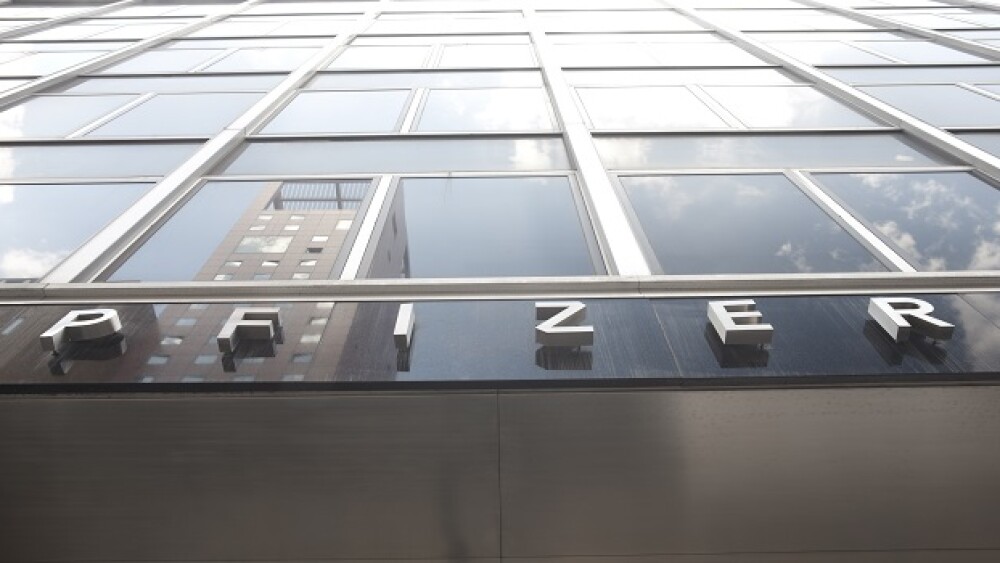There has been speculation for several years whether Pfizer Inc. would consider buying Bristol-Myers Squibb. That appears to have been laid to rest by comments made by Pfizer’s chief executive officer, Ian Read.
There has been speculation for several years whether Pfizer Inc. would consider buying Bristol-Myers Squibb. That appears to have been laid to rest by comments made by Pfizer’s chief executive officer, Ian Read.
Last year, Vamil Divan, an analyst with Credit Suisse, then Jonathan Weber, writing for Seeking Alpha, both argued that Pfizer should buy Bristol-Myers Squibb. The arguments include that Pfizer, which tried unsuccessfully to buy AstraZeneca in 2014 and Allergan in 2016, is still interested in a big acquisition. Both those deals were scuttled by opposition from the U.S. and UK governments, primarily over so-called tax inversions, where a U.S. company buys a company in a country with a lower corporate tax rate then shifts its headquarters to that country to benefit from the lower tax rate.
Weber’s rationale for Pfizer buying Bristol-Myers Squibb was three-fold. Pfizer revenues would benefit. Pfizer can afford it. And Pfizer has access to low-rate debt.
A stronger argument is that Bristol-Myers has a very large pipeline for multiple indications, but mostly in oncology, where Pfizer has expressed interest in expanding. In addition to the pipeline, Pfizer would pick up Bristol-Myers’ Yervoy and Opdivo, the top competitors to Merck’s Keytruda in the immuno-oncology market.
Read was speaking with Andrew Baum, an analyst with Citigroup, when he said that Bristol-Myers Squibb, despite having a market value of $96 billion, “was not worth paying the money for.”
And apparently, Read indicated he had no interest in other major deals, either. “In our meeting yesterday with Pfizer’s CEO, COO and CSO,” Baum wrote in a report to investors, “Pfizer made clear that they had no interest in Bristol-Myers Squibb in the absence of transformational data or de-rating of the shares.”
Bristol-Myers stock dropped about 2 percent, possibly related to the news, while Pfizer rose about 1.7 percent.
Most investors are watching to see what data Bristol-Myers Squibb will present at the upcoming American Association for Cancer Research (AACR) conference from its Phase III CheckMate -227 clinical trial. This study is evaluating Opdivo (nivolumab) and Yervoy (ipilimumab) against chemotherapy in first-line advanced non-small-cell lung cancer (NSCLC) patients whose tumors who high mutation rates regardless of PD-L1 expression.
FirstWord Pharma notes, “Credit Suisse analyst Vamil Divan estimated that shares in Bristol-Myers Squibb could jump by as much as eight percent if CheckMate -227 reveals a response rate that is 10 percent to 15 percent better than data from Merck & Co., which is scheduled to present results from the KEYNOTE-189 trial at the AACR meeting. In January, Merck said the late-stage study of Keytruda (pembrolizumab) plus chemotherapy for the first-line treatment of patients with metastatic non-squamous NSCLC, regardless of PD-L1 expression, met its dual primary endpoints of OS and PFS.”
Not everyone is excited, however. Alex Arfaei, an analyst with BMO Capital Markets, argues that Bristol-Myers Squibb is “already about one-and-a-half years behind” Keytruda and with Merck’s Keytruda doing so well as a monotherapy in first-line NSCLC, Bristol-Myers is likely to have disappointing results at the AACR meeting.
Of course, it’s possible that Read’s comments about a Bristol-Myers buyout is misdirection. Bristol-Myers may or may not beat out Merck’s Keytruda in NSCLC, but Opdivo and Yervoy generate a lot of revenue and the company has a deep pipeline, which would give Pfizer plenty to work with.





